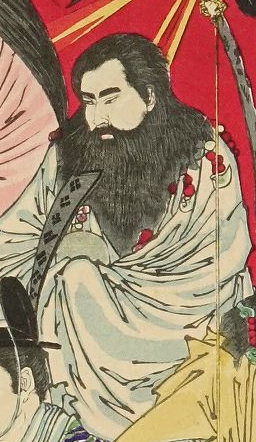Related Research Articles
Dinka spirituality is the traditional religion of the Dinka people, an ethnic group of South Sudan. They belong to the Nilotic peoples, which is a group of cultures in Southern Sudan and wider Eastern Africa. The Dinka people largely rejected or ignored Islamic and Christian teachings, as Abrahamic religious beliefs were incompatible with their society, culture and traditional beliefs.
Zulu traditional religion consists of the beliefs and spiritual practices of the Zulu people of southern Africa. It contains numerous deities commonly associated with animals or general classes of natural phenomena. Unkulunkulu is known to be the Supreme Creator.
The Tumbuka are an ethnic group living in Malawi, Zambia, and Tanzania. In Tumbuka mythology, Chiuta is the Supreme Creator and is symbolised in the sky by the rainbow.

The cosmic egg, world egg or mundane egg is a mythological motif found in the cosmogonies of many cultures and civilizations, including in Proto-Indo-European mythology. Typically, there is an egg which, upon "hatching", either gives rise to the universe itself or gives rise to a primordial being who, in turn, creates the universe. The egg is sometimes lain on the primordial waters of the Earth. Typically, the upper half of the egg, or its outer shell, becomes the heaven (firmament) and the lower half, or the inner yolk, becomes the Earth. The motif likely stems from simple elements of an egg, including its ability to offer nourishment and give rise to new life, as is reflected by the Latin proverb omne vivum ex ovo.

Ninigi-no-Mikoto is a deity in Japanese mythology. Grandson of the sun goddess Amaterasu, Ninigi is regarded according to Japanese mythology as the great-grandfather of Japan’s first emperor, Emperor Jimmu. The three sacred treasures brought with Ninigi from Heaven and divine ancestry established the Japanese Imperial Family.

Nyambe is the Supreme God, Sky Father, and God of the Sun across numerous traditional Bantu religions.

Akan religion comprises the traditional beliefs and religious practices of the Akan people of Ghana and eastern Ivory Coast. Akan religion is referred to as Akom. Although most Akan people have identified as Christians since the early 20th century, Akan religion remains practiced by some and is often syncretized with Christianity. The Akan have many subgroups, so the religion varies greatly by region and subgroup. Similar to other traditional religions of West and Central Africa such as West African Vodun, Yoruba religion, or Odinani, Akan cosmology consists of a senior god who generally does not interact with humans and many gods who assist humans.

A deity or god is a supernatural being considered to be sacred and worthy of worship due to having authority over the universe, nature or human life. The Oxford Dictionary of English defines deity as a god or goddess, or anything revered as divine. C. Scott Littleton defines a deity as "a being with powers greater than those of ordinary humans, but who interacts with humans, positively or negatively, in ways that carry humans to new levels of consciousness, beyond the grounded preoccupations of ordinary life".
Ajok, also known as Adyok and Naijok in certain variations, is the supreme deity in Lotuko mythology, who created humans as a mirror image of himself.
Arebati is known as the god of creation or supreme god in the mythology of the Efé people of the Democratic Republic of the Congo. The deity is also worshipped by the Mbuti people, but under a different name, which is Baatsi. In other African Pygmies' mythologies, Arebati and Tore are synonymous to one another, while in others, Tore is a forest god while Arebati is a lunar god.
Kalumba, also known as Sendwe Mwlaba, is the supreme god figure worshipped by the Luba people of the Democratic Republic of Congo.
Kuoth, also known as Kuoth Nhial, is in African mythology the supreme omnipresent god and creation god of the Nuer people of South Sudan and Gambella.
Libanza is a legendary figure in Boloki and Upoto mythologies. In Boloki mythology, Libanza is a heroic character who is depicted as the first man, while in Upoto mythology, Libanza is a supreme god worshipped for creating the universe.
Obassi is the supreme creator god of the people of Ekoi, who is based in Nigeria and Cameroon.
Ngewo is the supreme creator god of the people of Mende from Sierra Leone.
Nzame is the supreme creator god featured in the mythologies of the Fang people of Equatorial Guinea, Gabon, and Cameroon. The name is used to refer to a trinity of deities, which included Nzame, Mebere and Nkwa and is also used in reference to Nzame, one of the members of this trinity.
Abassi is the supreme creator god of the Efik, Ibibio, and Annang people of Nigeria. The depiction of Abassi in Efik and Annang traditions is influenced by Ibibio mythology since the two groups used to be part of the Ibibio before they migrated to different parts of southeast Nigeria and formed their own societies.
Bemba is the creator god in the traditional religion of the Bambara people of Mali. The name is used to refer to Bemba, who is portrayed as a god consisting of four distinct beings and is sometimes used to refer to one of its members, Pemba. Although Bemba is often referred to as male, the union of these four beings as Bemba is hermaphroditic, with the male aspects represented by Pemba and Ndomadyiri, while the female aspects are represented by Nyale and Faro.
Nhialic is the supreme creator god of the Dinka pantheon, whose people now dwell in South Sudan. When used in the context of Dinka language, the term also can refer to the entirety of the gods within the Dinka pantheon. In some accounts, Nhialic is also known as Deng Dit.
Wulbari is a supreme deity figure worshipped in the traditional religions of the Krache and Guang people in Ghana and Togo. Aside from his role as a supreme deity, Wulbari is a sky god, where he lived ever since he retreated from Earth. He is also often depicted as the foil to the spider god Anansi.
References
- 1 2 3 Lynch, Patricia Ann; Roberts, Jeremy (2010). African Mythology, A to Z. Infobase Publishing. ISBN 978-1-4381-3133-7.
- 1 2 3 4 "Mebege Creates an Egg". Oxford Reference. Retrieved 2021-02-15.
- ↑ Scheub, Harold (2000). A Dictionary of African Mythology: The Mythmaker as Storyteller (1st ed.). New York, NY: Oxford University Press. pp. xxiii, 90, 108–110, 165–166, 185, 260–261, 288, 379, 430, 464–467, 747–748. ISBN 9780195124569.
- ↑ Lynch, Patricia A. African Mythology A To Z (2nd Edition) Edited by Jeremy Roberts Dr, 2nd ed., Chelsea House Publications, 2010. p. 28.
- ↑ Fernandez, J. W. (2019-01-29). Bwiti: An Ethnography of the Religious Imagination in Africa. Princeton University Press. ISBN 978-0-691-19628-2.
